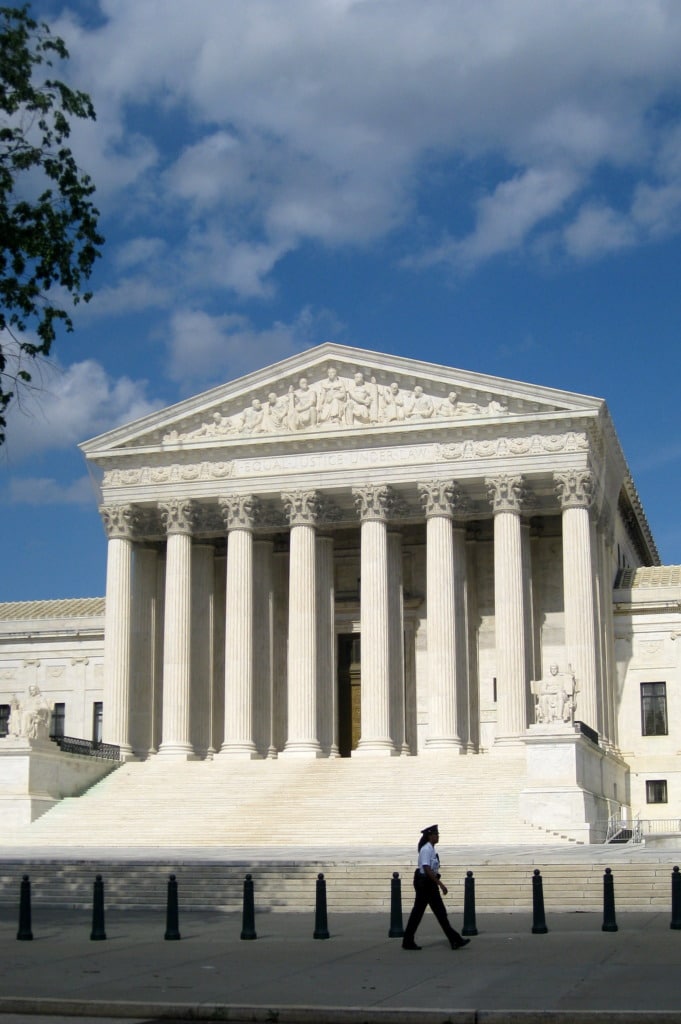Extraterritoriality and Self-Determination
Professor Evan Criddle has written a fascinating article on extraterritoriality, forthcoming in the American Journal of International Law, but available now on SSRN. Evan argues that much extraterritorial application of domestic law violates the right to self-determination under international law by subjecting non-nationals outside the territory of the regulating state to laws that are not…
Continue ReadingDOJ Argues Against Turnover of Argentina’s Assets
On November 6, 2024, the U.S. Attorney for the Southern District of New York sent a letter to Judge Loretta A. Preska arguing against turnover of Argentina’s interests in YPF S.A., a state-owned energy company, to satisfy a breach of contract judgment. The $16.1 billion judgment in Petersen Energia Inversora, S.A.U. v. Argentine Republic arose…
Continue ReadingWhat Deference to the Executive in Halkbank Should Have Looked Like
As previously reported, the Second Circuit issued its opinion in United States v. Turkiye Halk Bankasi (Halkbank) on October 22, 2024, addressing the deference owed to the executive branch’s determination that Halkbank, a Turkish state-owned bank, is not immune from criminal prosecution for violating U.S. sanctions on Iran. Similar questions of deference to the executive…
Continue ReadingEleventh Circuit Reverses Helms-Burton Judgments
On October 22, 2024, the U.S. Court of Appeals for the Eleventh Circuit overturned judgments of more than $100 million each against four U.S.-based cruise lines under the 1996 Helms-Burton Act. The decision is another example of just how difficult it has been for plaintiffs to recover under the act since President Trump allowed suits…
Continue ReadingConstitutionality of TVPA Challenged in First Circuit
As previously reported at TLB, a Massachusetts jury last year awarded $15.5 million in damages against Jean Morose Viliena for torture and extrajudicial killing under the Torture Victim Protection Act (TVPA). Viliena was mayor of a town in Haiti where the three plaintiffs lived. The jury found him responsible for murdering the brother of one…
Continue ReadingParol Evidence and the CISG
In MCC-Marble Ceramic Center, Inc., v. Ceramica Nuova d’Agostino, S.p.A. (1998), the Eleventh Circuit held that the American parol evidence rule does not apply in cases governed by the U.N. Convention on Contracts for the International Sale of Goods (CISG). Article 8(3) of the Convention instructs courts, in determining the intent of the parties to…
Continue ReadingApplying the TVPRA to Foreign Websites
The facts of Doe v. WebGroup Czech Republic are horrific. The complaint alleges that a U.S. citizen, fourteen years old, was filmed being raped, repeatedly, in the United States. Videos of the assaults were uploaded to foreign pornography websites, from which they were then viewed tens of thousands of times in the United States. Are…
Continue ReadingTransnational Litigation at the Supreme Court, October Term 2024
Today is the first day of the Supreme Court’s October Term. This post briefly discusses four transnational litigation cases in which the Court has already granted cert, as well as several others that are in the pipeline and could be decided this Term. Readers can also consult our Supreme Court page. Cases in which the…
Continue ReadingSupreme Court Grants Cert in Smith & Wesson v. Mexico
This morning, the Supreme Court granted cert in Smith & Wesson Brands v. Estados Unidos Mexicanos. As regular readers will know, Mexico sued Smith & Wesson and other gun manufacturers in federal district court of the District of Massachusetts, alleging that defendants design, market, and sell guns in ways they know will arm Mexican drug…
Continue ReadingDoes the New York Convention Apply to Investor-State Awards?
On August 9, 2024, in Zhongshan Fucheng Industrial Investment Co. v. Federal Republic of Nigeria, the D.C. Circuit held that Nigeria was not immune from suit to enforce an arbitral award for a Chinese investor under a bilateral investment treaty. The U.S. Foreign Sovereign Immunities Act (FSIA) has an exception to state immunity for actions…
Continue Reading








